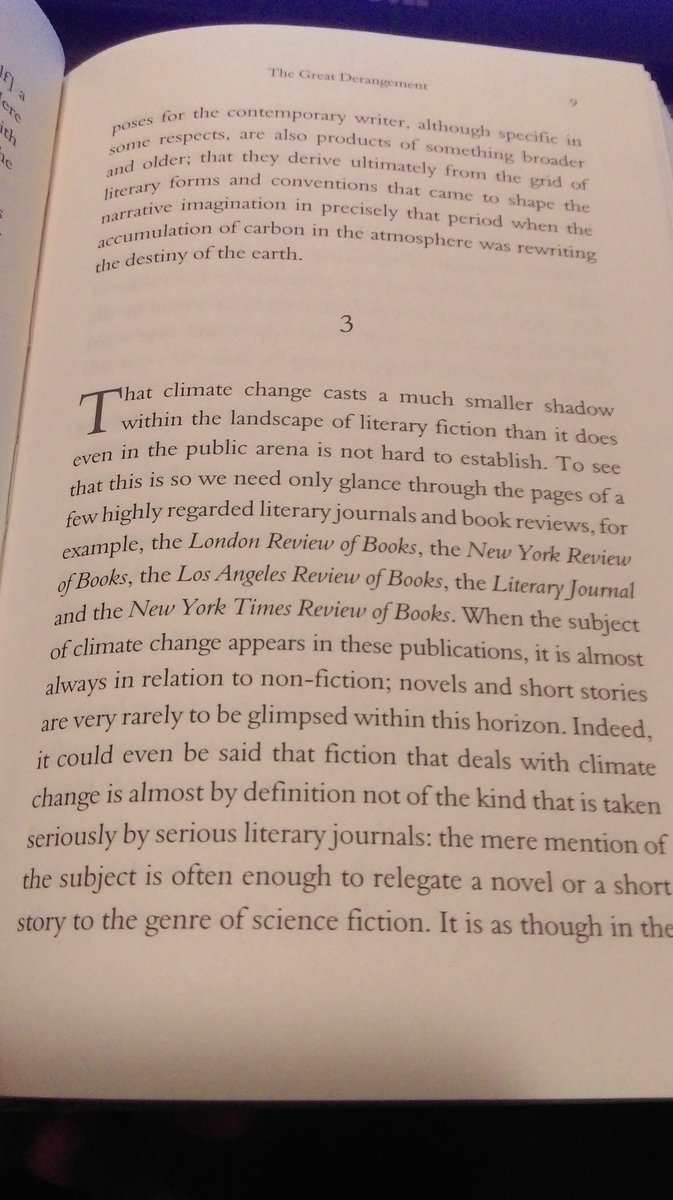''THE SUNLIGHT PILGRIMS''
By Jenni Fagan
272 pp. Hogarth. US$26.
By Jenni Fagan
272 pp. Hogarth. US$26.
EDITED EXCERPTS FROM MARISA SILVER'S REVIEW
As carbon dioxide levels rise .....writers respond. They bring us cli-fi novels of the post-apocalypse — philosophical explorations of what the world might look like when the fraying center finally shears. Whether the approaches are starkly realistic or fancifully speculative, these visions generally posit an end-time far enough into an unrecognizable future that we can maintain our illusions of safety from the comfort of our reading chairs.
Jenni Fagan, the fierce and cleareyed Scottish writer, will have none of that. In her new cli-fi, “The Sunlight Pilgrims,” she is committed to disrupting our ease by setting her story of impending cataclysm at a moment unnervingly near at hand. Fagan’s novel is set in 2020, and the world is familiar in every way but for one menacing difference: It is very, very cold.
The polar ice caps are melting, and the seas are rising. The mercury, as the story opens, is set at minus 6 degrees — colder than most of us regularly experience, but not unimaginable. And it is not so for the three characters who are the novel’s focus. ;;;;;;Dylan strikes up a friendship with Stella and Constance just as what is predicted to be the worst winter in 200 years descends over much of the planet.
The mercury plummets, ultimately reaching an unfathomable and unsurvivable minus 56 degrees. As the days grow short and most of life must be spent inside the confines of a trailer, the claustrophobia Stella feels inside a body that might soon betray her is mirrored by what is happening in the world.
When she takes an ill-advised bike ride into the freezing weather, we feel not only her physical desire to break out of her trailer home but also her desperation to escape the gender she was born into. Fagan joyfully summons the sheer jubilance of the girl’s physical power as well as her fear when she realizes she’s out of her depth in the freeze. The evocation of that maturational tipping point where wisdom trumps desire is one of the novel’s wrenching explorations. There is so much for this young girl to lose. That she receives news of frozen bodies and devouring sinkholes, of food shortages and economic collapse from the internet makes her isolation that much more devastating. A young Italian transgendered man who is Stella’s online consigliere suddenly disappears from the web, and we, like Stella, can only wonder if he has fallen victim to the freeze.
[“The Sunlight Pilgrims” is a stylistically quieter novel than Fagan’s bravura debut, “The Panopticon” — a fiery and voice-driven effort that landed her on Granta’s 2013 list of the best British novelists under 40 years old — but it is no less critical in its portrayal of marginalized people under the pressure of society’s norms.]
Fagan is a poet as well as a novelist, and many of her images of this unbidden winter are shot through with lyric beauty. Early on, we are told that in this worst of winters “icicles will grow to the size of narwhal tusks or the long bony finger of winter herself.”

















